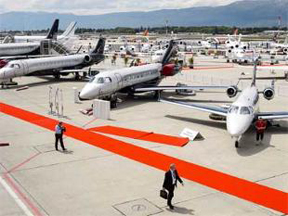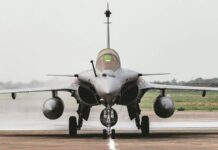 NEW DELHI: Almost the entire airline industry plans to invest over the next three years in new Information Technology (IT) initiatives ranging from managing flight disruptions to introducing self-service technologies for passengers to meet such challenges, a global survey has shown.
NEW DELHI: Almost the entire airline industry plans to invest over the next three years in new Information Technology (IT) initiatives ranging from managing flight disruptions to introducing self-service technologies for passengers to meet such challenges, a global survey has shown.
The survey shows that by 2017, 90 per cent of airlines plan to use business intelligence solutions to manage flight disruptions more effectively and efficiently, while 87 per cent plan to use self-service technologies to improve passenger services during periods of disruption.
Informing passengers of disruptions in real-time through the mobile phone was now being offered by over half of the airlines surveyed, while 92 per cent planned to do so by 2017, said the survey carried out by major aviation communications and IT firm Societe Internationale de Telecommunications Aeronautique (SITA), based in Geneva (Switzerland).
The initial focus of the airlines was on real-time communication with passengers and between stakeholders, the survey launched at the ongoing Air Transport IT Summit in Brussels showed.
In addition, more than one third of the airlines currently use social media to keep passengers informed and 80 per cent planned to follow suit by 2017, it said.
In the area of prevention, 90 per cent of the carriers planned to have business intelligence initiatives in place by 2017 to help manage disruptions, with over half having integrated systems to predict potential disruptions and impact before they even happen, the SITA survey showed.
With the majority of flight delays caused by unavoidable reasons like weather, extreme rain or snow storms, airlines have been continuously striving to find the best way to manage disruptions, SITA CEO Francesco Violante said.
“The aim is that when incidents happen the industry will be better prepared to minimize disruption. The fact that airlines are focusing on this very difficult area is a healthy indicator of the desire to deliver a better passenger experience while improving airline efficiencies,” he said.
The main areas of the survey were disruption management, communications, passenger recovery or re-bookings, staff awareness and prevention and the global airlines plan to invest in all these areas.–PTI






